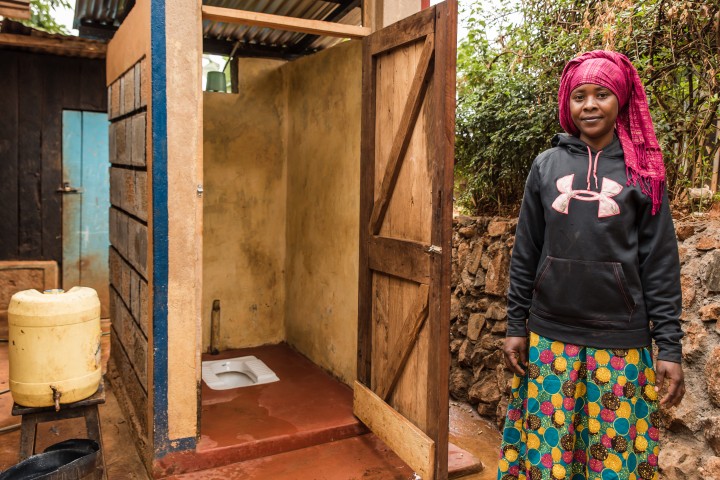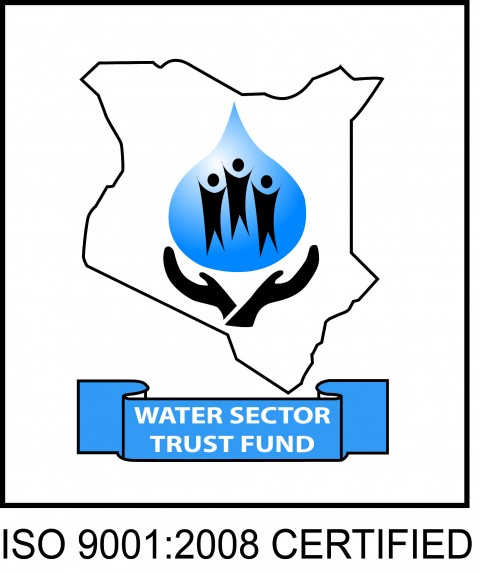Up-scaling Basic Sanitation for the Urban Poor (UBSUP) in Kenya
2011 - 2018 • Water Sector Trust Fund (WSTF)
Purpose
To improve the living conditions of the urban poor by offering access to sustainable plot level sanitation and safely managed sludge treatment options for up to 400,000 residents of urban low income areas in Kenya.
Activities
The UBSUP programme is implemented by the Water Sector Trust Fund (WSTF), which is a Kenyan state corporation mandated to finance water and sanitation services for the poor and under-served communities. UBSUP covers the entire sanitation service chain from toilet to treatment and is carried out on the grounds through the licensed water service providers (water utilities). The UBSUP approach is based on 3 key pillars: technology, social marketing, and business & financing. It comprises the following steps:
1. Creating demand: the WSTF launches a call for proposals and the water utilities apply for funding. A comprehensive social marketing / branding concept helps the water utilities create demand in their area for household toilets.
2. Promoting toilet construction: households choose from different standardised toilet options. The toilet owner receive a financial incentive covering part of the investment cost, after the toilet has been built according to standards.
3. Partnering with private sector: private vacuum tankers are registered with the water utilities to provide the collection and transport services. Business opportunities arise from the newly constructed toilets.
4. Setting up a decentralised treatment system: in case the town is not equipped with a treatment facility, UBSUP supports the construction of a Decentralised Treatment Facility (DTF) , which provides physical and biological treatment (no electricity or chemical additive) and can receive up to 22m3 of faecal sludge daily.
5. Monitoring and evaluation: tailor-made information systems and processes allow the WSTF and other stakeholders to prioritise, implement and monitor their interventions in order to improve access to sanitation.
Images

Image: UBSUP toilet beneficiary in Chuka © Berea production - GIZ/WSTF
Countries of activity
Location of main activity
Objectives
1. Provide sustainable sanitation for over 400,000 people in the urban low income-areas in Kenya
2. Track access to sanitation for urban low income area dwellers through a monitoring system and make that information accessible to the public (i.e. an online database).
3. Enable sector institutions, civil society organisations and small-scale private entrepreneurs to actively participate in the provision of basic sanitation to the urban low income areas and cooperate with research institutes to improve sanitation options.
4. Ensure sustainable use of facilities and further development of the sub-sector through a sanitation up-scaling concept in line with the sector reforms.
Further information
The WSTF is being supported by GIZ.
Videos
Video about UBSUP project on Nov 22, 2017
Contact information
Charles Kanyugo
Login to see the e-mail-adress of the contact person.
Ruth Nganga
Login to see the e-mail-adress of the contact person.
Stella Warue
Login to see the e-mail-adress of the contact person.
Filter tags
Bill & Melinda Gates Foundation Capacity development Cities Composting, vermicomposting (solid waste), composting toilets Constructed wetlands Decentralised wastewater treatment (e.g. DEWATS) Emptying and transport (non sewered) Enabling environment and institutional strengthening Faecal sludge treatment processes Faeces or faecal sludge Fertiliser Government-owned entity (not university or research) Market development Multi-lateral and International Monetary Fund Operation, maintenance and sustainable services Peri-urban Political processes and institutional aspects Practitioners Public awareness, advocacy and civil society engagement Resource recovery Specific to one or several countries Sub-Saharan Africa Technology comparisons Toilets or urinals (user interface) Treatment of faecal sludge Treatment of wastewater or greywater Urban informal settlements (slums) Urine Urine diversion dehydration toilets (UDDTs)
Attached files
Links
Water Sector Trust Fund
Nairobi
Kenya
Uploaded by:
Trevor Surridge (tmsinnovation)















